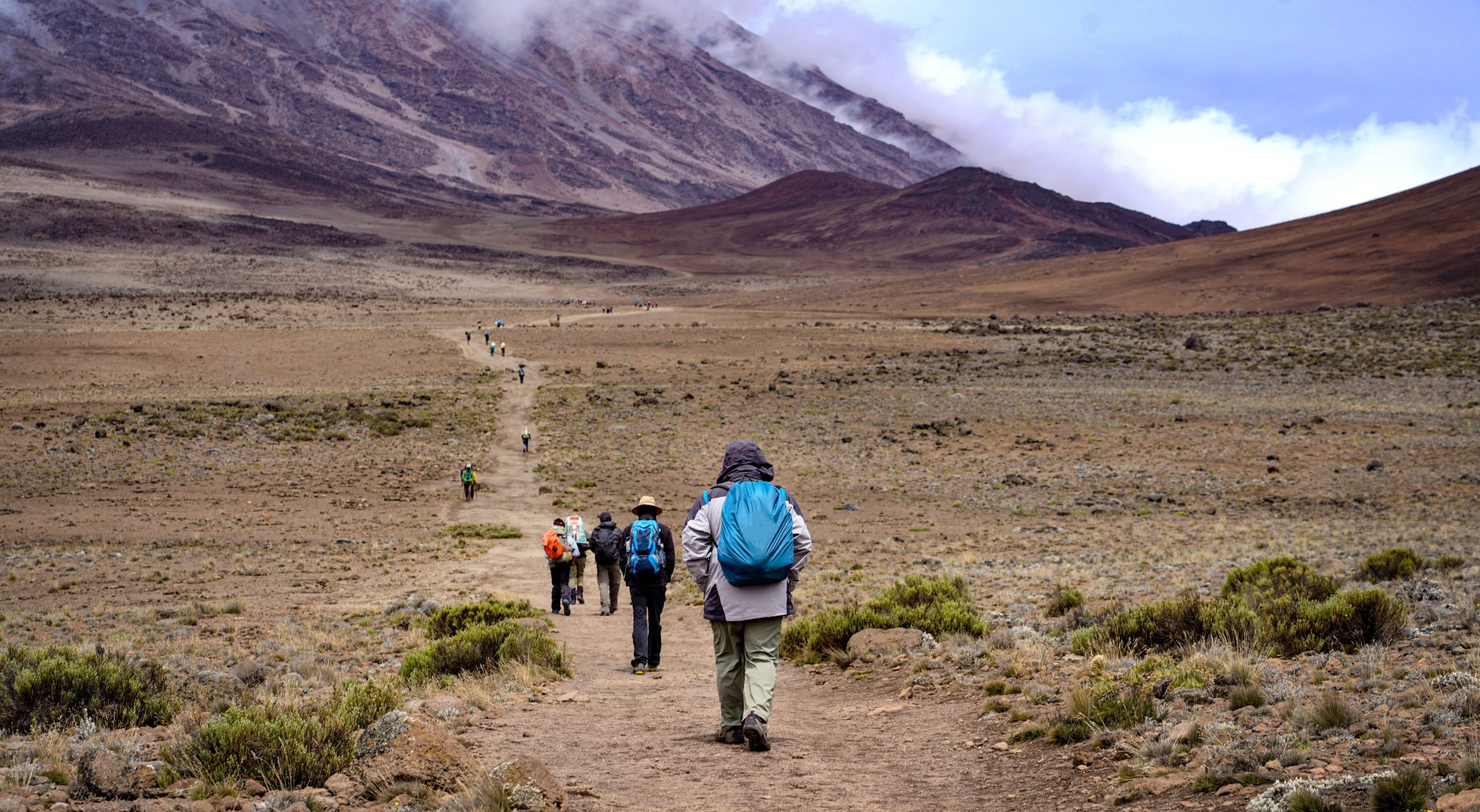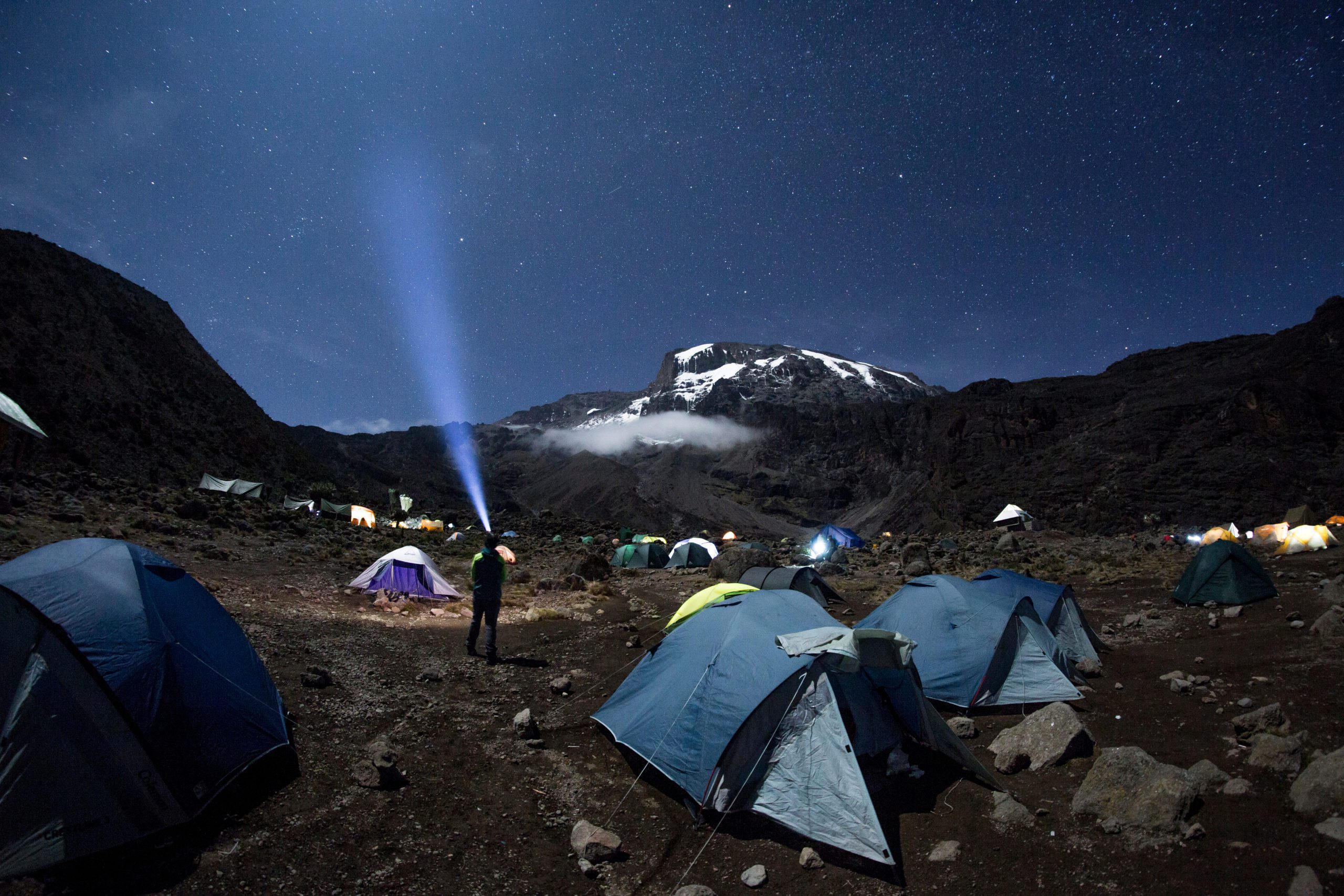Kilimanjaro Trekking
Over 30,000 people climb Kilimanjaro each year and for many it’s an adventure of a lifetime. So, if you’re up for the challenge of climbing the world’s tallest freestanding mountain, we’ve compiled everything you need to know in this beginner’s guide to Kilimanjaro trekking.
Kilimanjaro is undoubtedly a challenge, so it’s essential that you are fully prepared for your mountain climb: which route is best to you, the best time to climb, fitness training, how to acclimatise to high altitude and prevent altitude sickness, gear required, plus the logistics.
Kilimanjaro Climbing Cost 2022-2023
-
 BUDGET CLIMB
BUDGET CLIMB
-
 BUDGET CLIMB DISCRIPTIONS
BUDGET CLIMB DISCRIPTIONS
-
 LUXURY CLIMB
LUXURY CLIMB
-
 LUXURY CLIMB DISCRIPTIONS
LUXURY CLIMB DISCRIPTIONS
Description
Classic climbing is marked by the fusion of excellent service, comfortable hotels, experienced climbing crew and reasonable price. The key features of the classic climb are the following:
• The crew carries your luggage
• The crew cooks your meals (we provide large selection of hot dishes, fruits, snacks)
• The crew makes all camp preparations
• The crew handles other difficulties in the mountains
• You stay in standard hotels before and after the climb
We recommend this option for the amateur trekkers with no or minimal previous experience. Moreover, experienced climbers willing to rest on the mountains and avoid distracting by the logistics often decide on this option. Choosing Classic Climb with Moja africa Experience will make your Kilimanjaro experience adventurous and memorable!
Classic climb includes the following:
• Meeting at Kilimanjaro International Airport;
• Transfer to leopard hotel or Parkview Inn hotel;
• Accommodation at the hotel in Moshi (includes breakfast, accommodation in double rooms);
• Transfer to the climbing route;
• Professional team support. All guides are certified «Wilderness First Responders», «Wilderness First Aid», and experience climbing over 7 years. Two porters are assigned to each climber (can carry up to 15 kg);
• Kilimanjaro National Park fees;
• Rescue fee;
• Ecological fee;
• Regular nutritional meals three times a day + fresh fruits;
• Warm and comfortable mattresses:
• Modern tents “The North Face” VE 25 / 2-Meter Dome Tent;
• Briefing with English-speaking support team before the start of the ascent;
• Medical kit;
• Equipment for group (power tent / table / chairs / crockery);
• Drinking bottled water for the first days of climbing;
• Meet the group at the exit of the National Park and transfer to the hotel;
• Kilimanjaro climbing certificates;
• Transfer to Kilimanjaro International Airport.
* Basic tour package price includes sharing a twin room. If you need a single bed accommodation only, you should contact a manager a minimum of 2 weeks prior to the start of the tour.
*During the climb you will share a tent with 1-2 other climbers, depending on the number of participants. If you need an individual tent, please, contact our manager. Single accommodation at sleeping huts on Marangu is impossible.
Classic climb does not include:
• Airfare;
• Visa fees;
• Lunch and dinner at the hotel (before and after the climb);
• Rent of personal equipment;
• Oxygen systems;
• Bio toilet;
• Alcoholic beverages;
• Support team tips $ 50-100 per climber;
• High-altitude trekking insurance.
Description
Luxury trekking option is for those, who stick to every detail. The key features are the following:
- The group is equipped with everything necessary, including oxygen system, satellite phone, bio toilet and shower
- You receive an insurance
- Camping, meals (rich, nutritional menu) and other arrangements are done by the professional
- crew
- Only the most luxury hotels are chosen
VIP quality service will make your Tanzania tour unforgettable!
Luxury climb includes the following:
- Meeting at Kilimanjaro International Airport;
- Transfer to Protea Hotel Aishi Machame in Moshi ;
- Accommodation at Protea Hotel Aishi Machame (full board, accommodation in singles / doubles / twins upon request);
- Transfer to the starting point of the trek;
- Professional climbing. All guides are certified «Wilderness First Responder», «Wilderness First Aid», and experience climbing over 7 years. On each of the climbers, we assign two porters. Specially trained camp crew is responsible for all camping installations;
- Kilimanjaro National Park fees;
- Rescue fee;
- Ecological fee;
- Regular nutritional meals three times a day + fresh fruits + special premium dishes;
- Warm and comfortable mattresses;
- Modern tents “The North Face” VE 25 / 2-Meter Dome Tent;
- Satellite phone Iridium 9575 Extreme;
- Medical kit;
- Oxygen systems;
- Bio toilet;
- Equipment for group (power tent / table / chairs / premium kitchenware);
- Duffel bag for the belongings carried by porters (80-120 liters);
- Potable bottled water at all stages of the climb;
- Emergency evacuation by the Flight Doctor if necessary;
- High-altitude trekking insurance;
- Meeting at the exit of the National Park and transfer to the hotel;
- Kilimanjaro climbing certificates;
- Transfer to Kilimanjaro International Airport.
* Basic tour package price includes sharing a twin room. If you need a single bed accommodation only, you should contact a manager a minimum of 2 weeks prior to the start of the tour.
** During the climb you will share a tent with 1-2 other climbers, depending on the number of participants. If you need an individual tent, please, contact our manager. Single accommodation at sleeping huts on Marangu is impossible.
Luxury climb does not include:
- Airfare;
- Visa fees;
- Rent of personal equipment;
- Alcoholic beverages;
- Support team tips $ 100-200 per climber.
Kilimanjaro Packing List
Kilimanjaro FAQ's
You will need decent fitness to tackle Kili. The toughest part is the acclimatization.
Those who fail to summit Kili do so from altitude sickness, or if they aren’t physically fit enough.
A normal day includes 4-5 hours of walking (excluding the last two days which are more physically intense), while the rest of the day is spent acclimatizing at base camps.
Acclimatization can affect people differently, sometimes causing nausea or loss of appetite. Experience hiking at high altitude is recommended before taking on Kili.
If you book with a good quality operator, and don’t cut corners to reduce costs, then it is safe.
Most people fail because they do not take the trek seriously enough and don’t give themselves enough time to acclimatize.
The park forces end up rescuing around 1,000 people each year.
There are long drop toilets at camps, but these are notoriously dirty. Your tour operator will sometimes bring their own toilets, but during day time you will just go behind a bush or a rock.
No. There are no showers at all, but your tour operator will give you a bowl with water to freshen up at night. The shower back at the hotel will feel all the better for it!
Not if you leave enough time to acclimatize. The operators we work with will bring oxygen in case of emergencies.
A tour can cost between $1,000 to $4,000.
Generally, we would never pay less than $2,000.
Climbing Kilimanjaro is expensive due to the high rates that the national park charges in conservation, rescue and crater fees (over $100 per person per night), combined with all the equipment, personnel, and services required to safely make it to the summit.
It is unwise to cut costs here as it is the staff – the guides, porters and cooks – that tend to feel budget cutting first, creating unfair and unsafe working environments.
